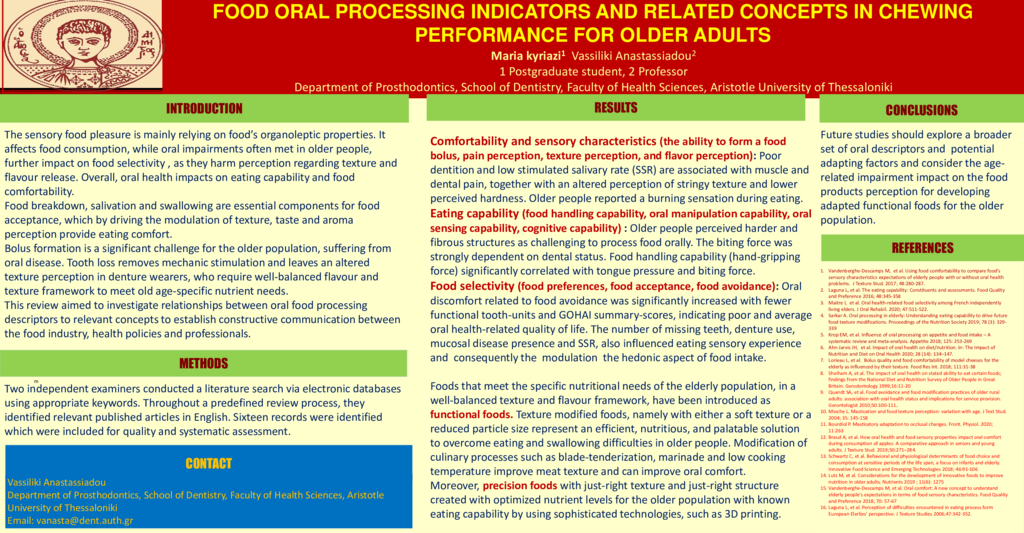Background and aim: The sensory food pleasure is mainly relying on food’s organoleptic properties. It affects food consumption, while oral impairments often met in older people, further impact on food selectivity , as they harm perception regarding texture and flavour release.Overall, oral health impacts on eating capability and food comfortability. Food breakdown, salivation and swallowing are essential components for food acceptance, which by driving the modulation of texture, taste and aroma perception provide eating comfort. Bolus formation is a significant challenge for the older population, suffering from oral disease. Tooth loss removes mechanic stimulation and leaves an altered texture perception in denture wearers, who require well-balanced flavour and texture framework to meet old age-specific nutrient needs. This review aimed to investigate relationships between oral food processing descriptors to relevant concepts to establish constructive communication between the food industry, health policies and professionals. Materials: Two independent examiners conducted a literature search via electronic databases using appropriate keywords. Throughout a predefined review process, they identified relevant published articles in English. Sixteen records were identified which were included for quality and systematic assessment. Results: Comfortability and sensory characteristics: Poor dentition and low stimulated salivary rate (SSR) are associated with muscle and dental pain, together with an altered perception of stringy texture and lower perceived hardness. Older people reported a burning sensation during eating. Eating capability: Older people perceived harder and fibrous structures as challenging to process food orally. The biting force was strongly dependent on dental status. Hand-gripping force significantly correlated with tongue pressure and biting force. Food selectivity: Oral discomfort related to food avoidance was significantly increased with fewer functional tooth-units and GOHAI summary-scores, indicating poor and average oral health-related quality of life. The number of missing teeth, denture use, mucosal disease presence and SSR, also influenced eating sensory experience and consequently the modulation of the hedonic aspect of food intake. Conclusion: Future studies should explore a broader set of oral descriptors and potential adapting factors and consider the age-related impairment impact on the food products perception for developing adapted functional foods for the elderly population.
- 31 views



